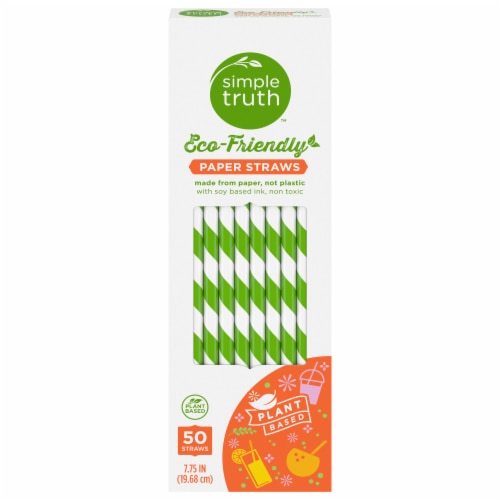Sometimes you read a label on a product and it’s obviously too good to be true: Maybe it’s a drink that claims to help you lose five pounds in a week, or a supplement that will help you suppress your appetite for days. Some bogus statements such as these are easy to spot—but others, not so much. Many companies are employing a technique called greenwashing, but it’s not always simple to identify. Here’s what you need to know.
What is greenwashing?
Greenwashing, or “green sheen,” has become increasingly common. The term is used to describe the practice of conveying misleading or unsubstantiated claims that falsely markets a product as being organic or natural, devoid of any artificial ingredients, says Rina Mary Allawh, MD, a dermatologist at Montgomery Dermatology outside Philadelphia.
Though the FTC prohibits deceptive marketing practices, often these guidelines are not legally binding. It’s also difficult to enforce legal consequences against false environmental advertising claims.
Why do companies do it?
“Consumers are increasingly concerned about the use of ‘clean,’ environmentally friendly, safe ingredients,” says Dr. Allawh. “Many skin care corporations are aware of this and have dedicated their marketing strategies to keep in line with this green wave.”
Companies know that consumers increasingly prefer to buy products from brands that are environmentally friendly over brands that are not. According to a Nielsen report, 66 percent of global consumers say they’re willing to pay more for sustainable brands—and that number continues to rise.
“The numbers speak for themselves: Doing good for the environment is good for business, if it is done the right way, says Krystal Nelson, founder and CEO of the sustainability consulting firm I-Impakt. That said, many companies are not taking the right approach, she says. Instead, they’re engaging in greenwashing for two main reasons: either attempting to recover from damage to their brand or legal ramifications of their environmentally irresponsible business practices, or not doing due diligence to verify that their business practices actually support their environmental claims.
Examples of greenwashing
It can be challenging for consumers to recognize greenwashing when they see it, but some terms to watch out for on labels are eco-friendly, earth-friendly, chemical-free, gentle, plant-derived and sulfate-free, says Dr. Allawh.
More examples of greenwashing, according to Nelson, include:
- Companies marketing natural products that use child labor to source ingredients.
- Companies marketing organic and gluten-free but lacking the certifications to validate those claims.
- Companies marketing cruelty-free products but not taking any steps to verify that their suppliers are cruelty-free.
- Companies marketing “rare natural ingredients” in their product, even though the ingredient is an endangered species nearing extinction.
- Companies taking an existing non-eco-friendly product and rebranding it as green, but not changing the formula.
- Companies marketing eco-friendly ingredients without taking steps to address the toxic packaging used for their products.
- Companies marketing environmentally friendly practices but having contradictory policies, or not addressing exactly how the company holds itself accountable to environmental practices.
How to be more aware of greenwashing
Your first line of defense against greenwashing is to be proactive in educating yourself. “Education is important, as greenwashing is sometimes obvious, and at other times hidden,” notes Nelson. Here are a few things you can do:
- Watch out for the buzzwords mentioned above. Companies that use these words but don’t explicitly define what those mean on their website are a red flag.
- Check for reputable third-party verification on things like organic and eco-friendly before purchasing products.
- Don’t fall for packaging. “Companies that use nature scenes or green/earth tones in their packaging are intentionally trying to market their product as environmentally friendly,” says Nelson. While not all companies are being untruthful in this, do your research on the company to make sure you’re not being deceived.
- Be wary of celebrity endorsements. Just because a big name appears in a commercial for a clean beauty product doesn’t necessarily mean he or she believes in the product, or that the product’s claims are truthful.
- Finally, if it sounds too good to be true, then it’s time to do more research, says Nelson. “Companies that are touting their ingredients or environmental efforts as ‘100 percent’ or using the word ‘all’ may not be telling the complete truth,” she adds.
Smart resources for green products
Be sure to use reputable sources when researching products and ingredients. Dr. Allawh recommends the free databases at ecolabelindex.com, which has a global directory of ecolabels and environmental certifications. Other helpful resources include The International Natural and Organic Cosmetics Association, and you can always ask your dermatologist about products, too.
Don’t be too hard on yourself if you find that you’ve fallen for greenwashing and find less-than-reputable products in your beauty cabinet. “Unveiling the truth behind these claims can be challenging and often frustrating,” says Dr. Allawh. However, you can train yourself to look beyond the hype and to research the active ingredients and claims of skincare products, determining for yourself if the product is all that it’s marketed to be—and if it’s something you want to use on your own skin.




